Winter 2018-19 brought me two new experiences: fatherhood and the sharing of voting rights on a car purchase. My other half’s red lines for the family hack prescribed something high-riding with a respectable image. I wanted petrol smoothness, passable performance and a durable cabin. A 2009 Volkswagen Tiguan Sport 2.0 TSI with a manual gearbox and 197bhp ticked the boxes.
Heated hide and door mirrors complemented the Haldex-based four-wheel drive system to make the cold months that linger long in Edinburgh more bearable. But for full rink-ready efficacy, I needed winter rubber.
The Tiguan’s 18in alloys came wrapped in 235/50 R18 summer tyres from Goodyear, but rather than swapping them for cold-weather equivalents, I went for a separate set of plumper, narrower tyres on smaller steel wheels for winter use only. Whichever set was spare could fortunately be stored in our garage.
This was for two main reasons. Smaller tyres are cheaper, as are the small steel wheels you can fit them to. But more important, narrower tyres generally fare better on packed snow and standing water because they focus the vehicle’s weight onto smaller contact patches.
Cherries on top were that my alloys would avoid the worst of the weather, the Tiguan Sport’s unnecessarily firm ride would soften, lower rolling resistance would save a little fuel and I could change the wheels over myself should the notion grip me come the equinox.
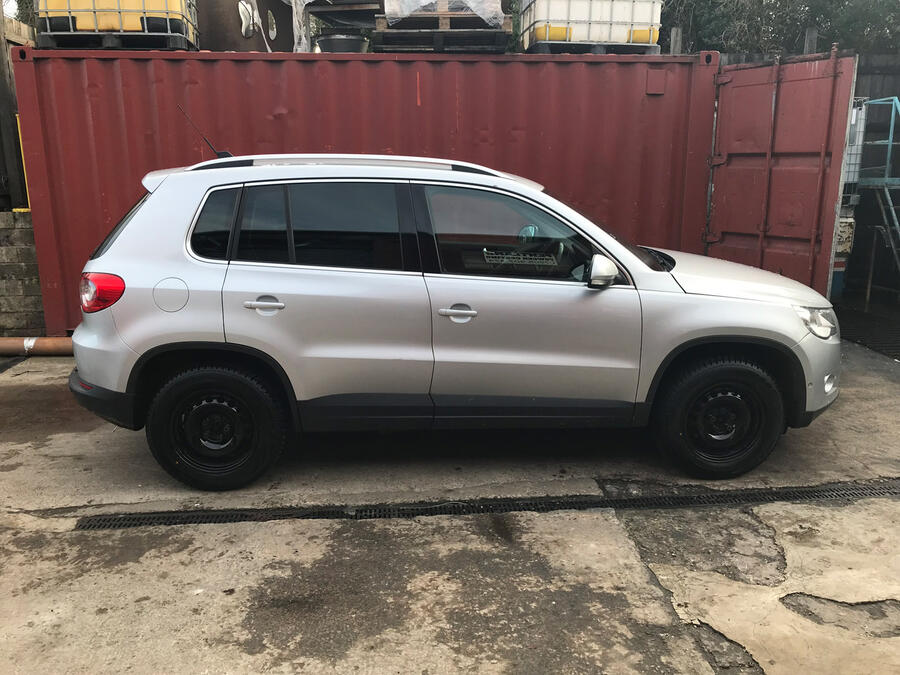
I chose Falken Eurowinter HS01s for their combination of mid-range price and high wet-grip rating, which was important because the tyres would be parting cold water more often than crunching over snow. The smallest wheels approved for our car by the TUV – arbiter of such things on the Continent – were 16in in diameter and 6.5in wide, with the appropriate tyres being 215/65 R16s.
At £130 for each corner (£90 per tyre plus £40 per Alcar steel wheel), this was still a cheaper solution than the £140 it would cost to fit the same rubber to the Tiguan’s 18in alloys.
Ordered and fitted, I was happy with the dynamics, but less so the aesthetics. As a steel wheel fetishist, I could brush off assumptions that my alloys had been half-inched, but the silver paint on the rims exaggerated just how small they really were. They looked, well, silly.

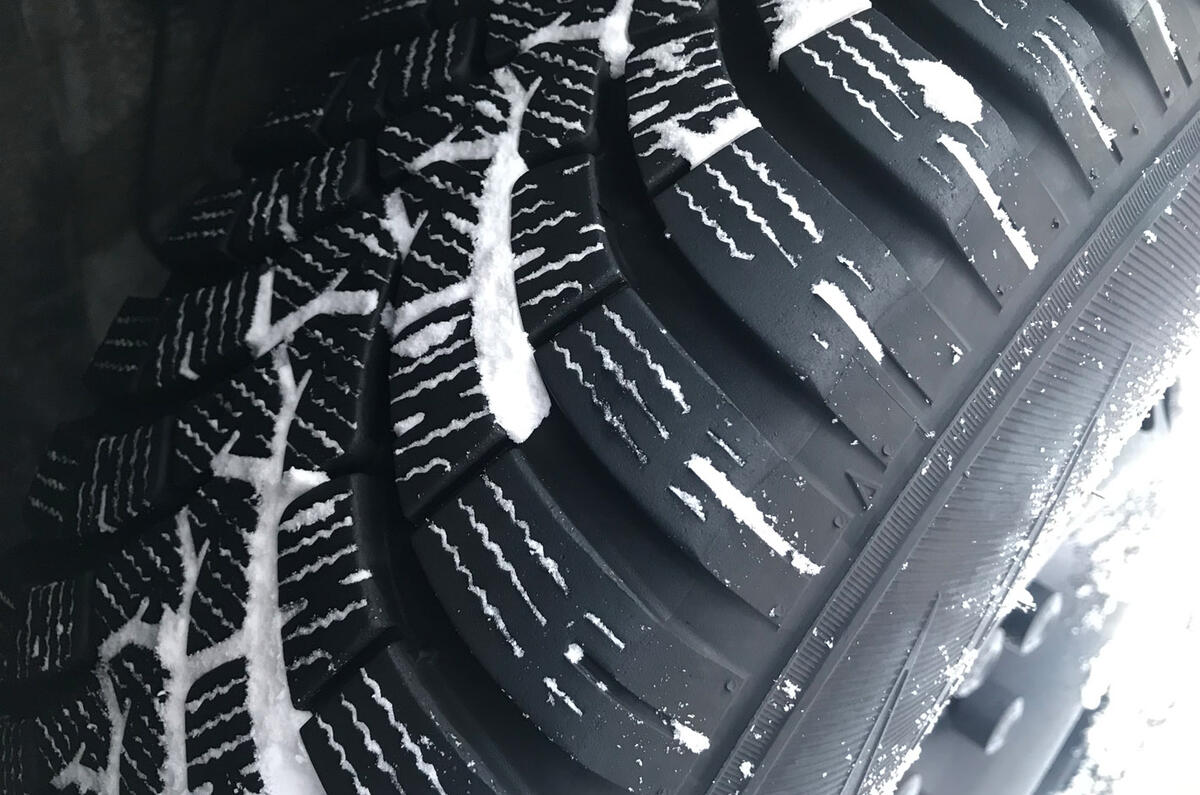

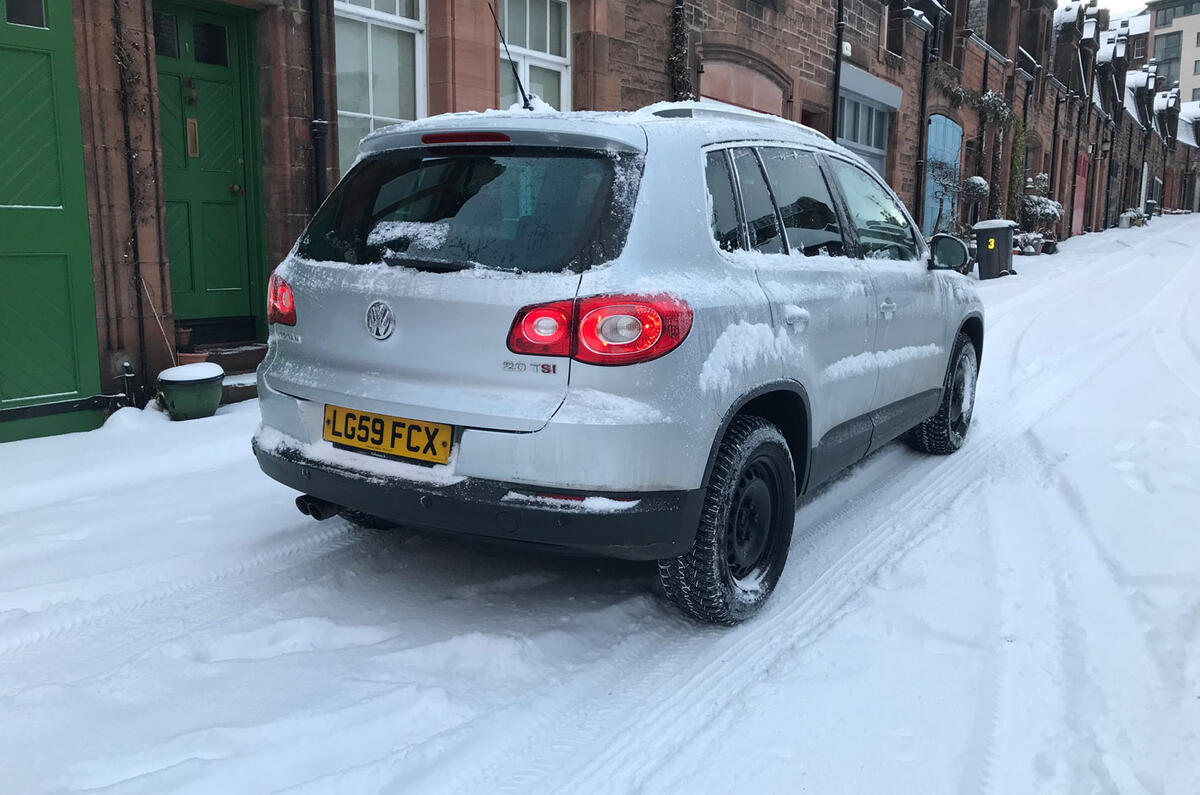
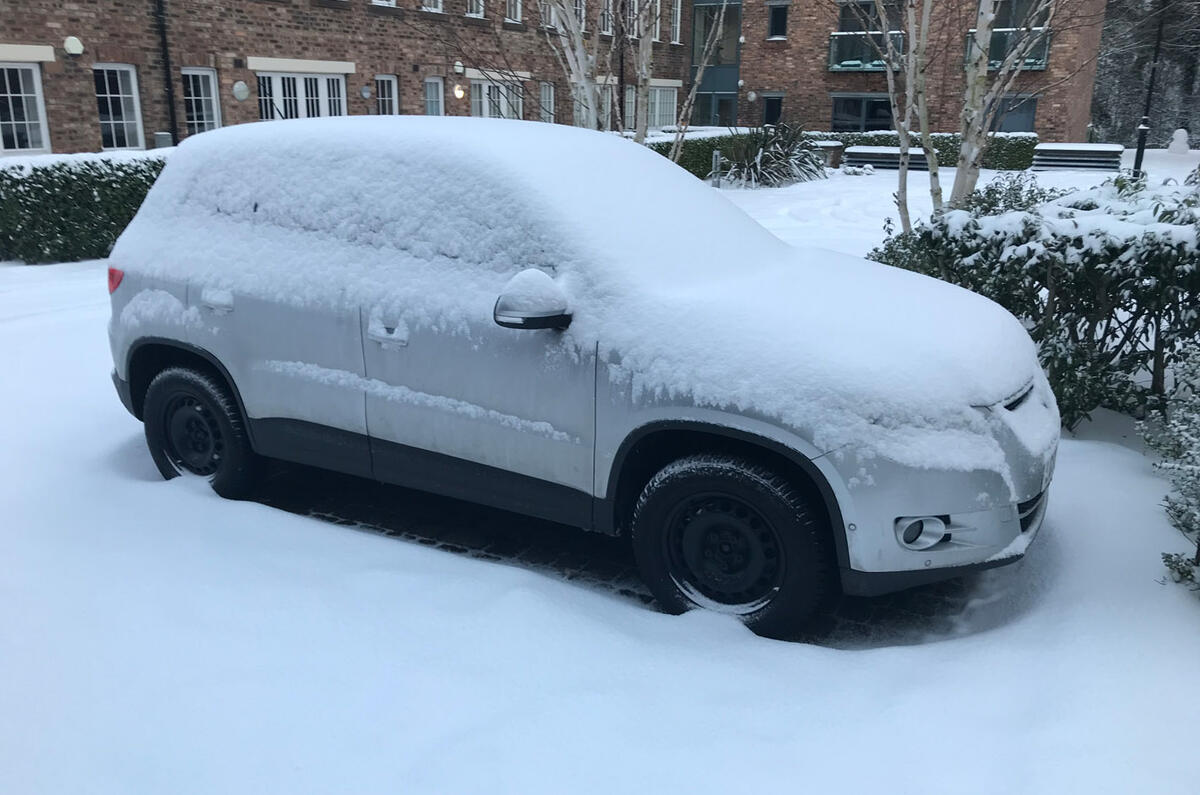
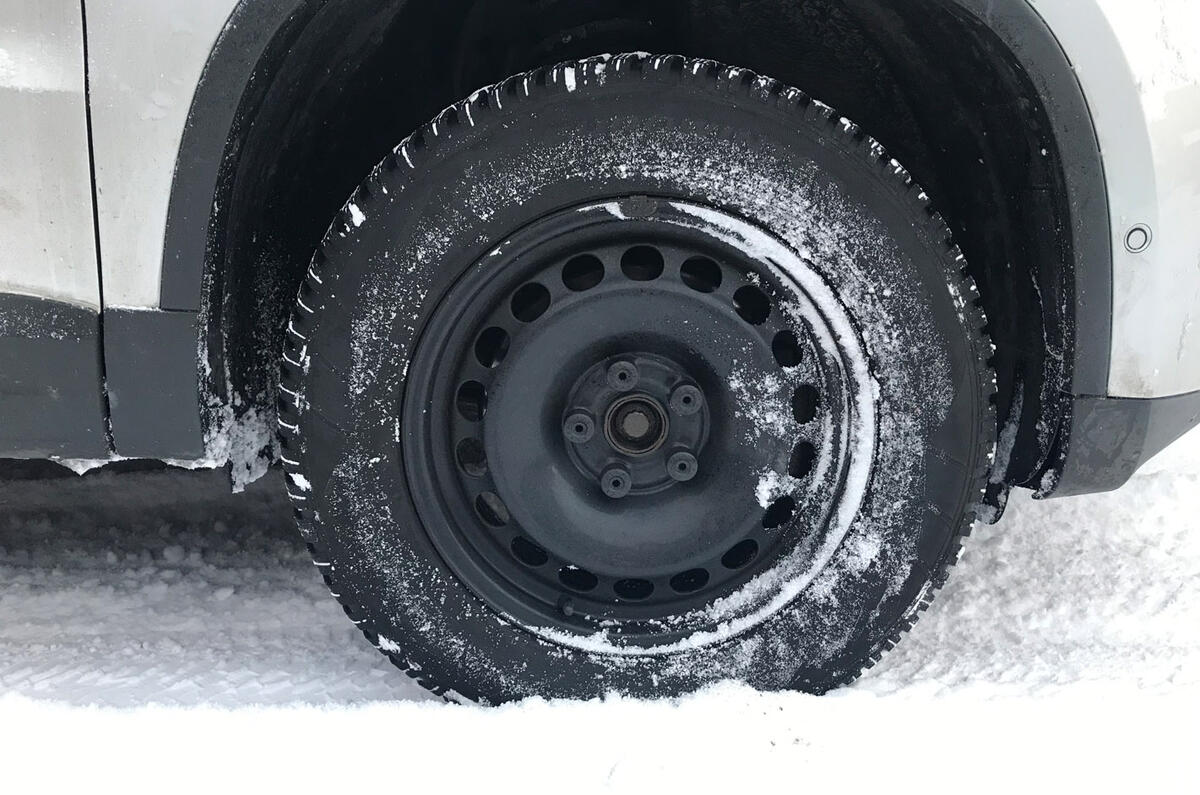
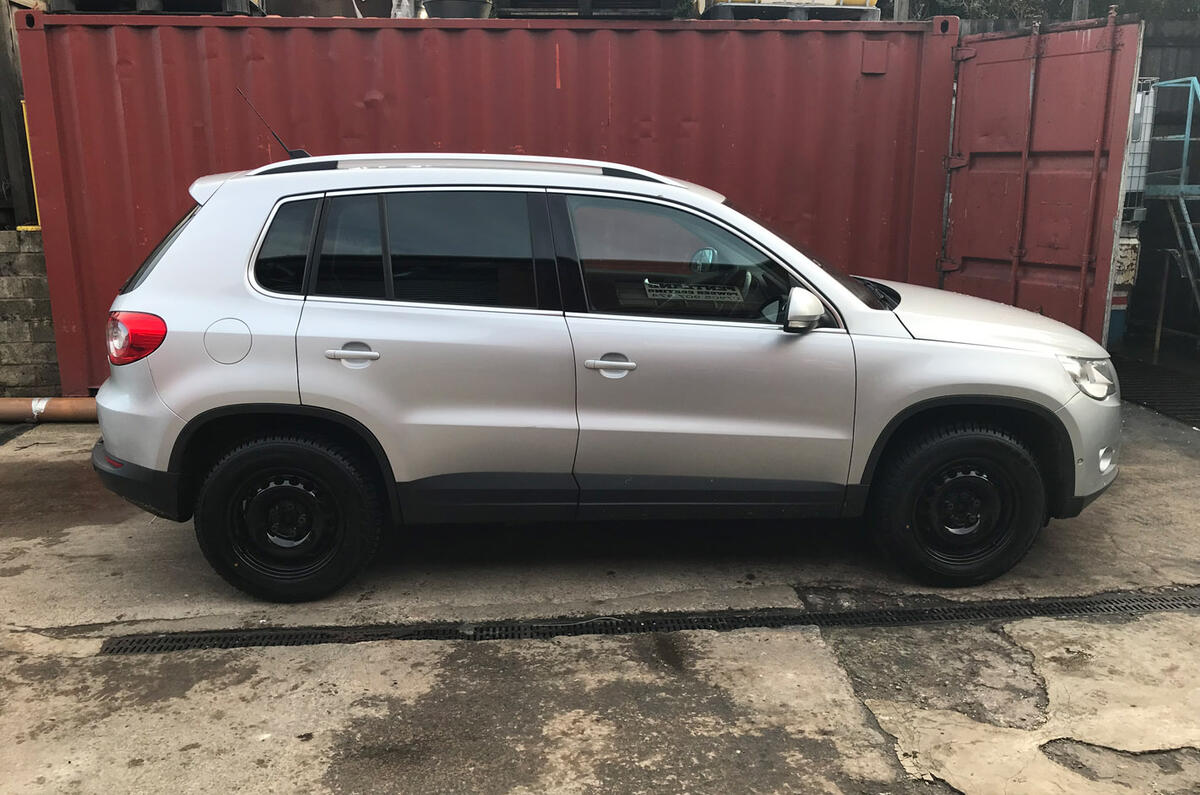




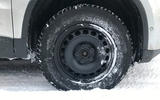


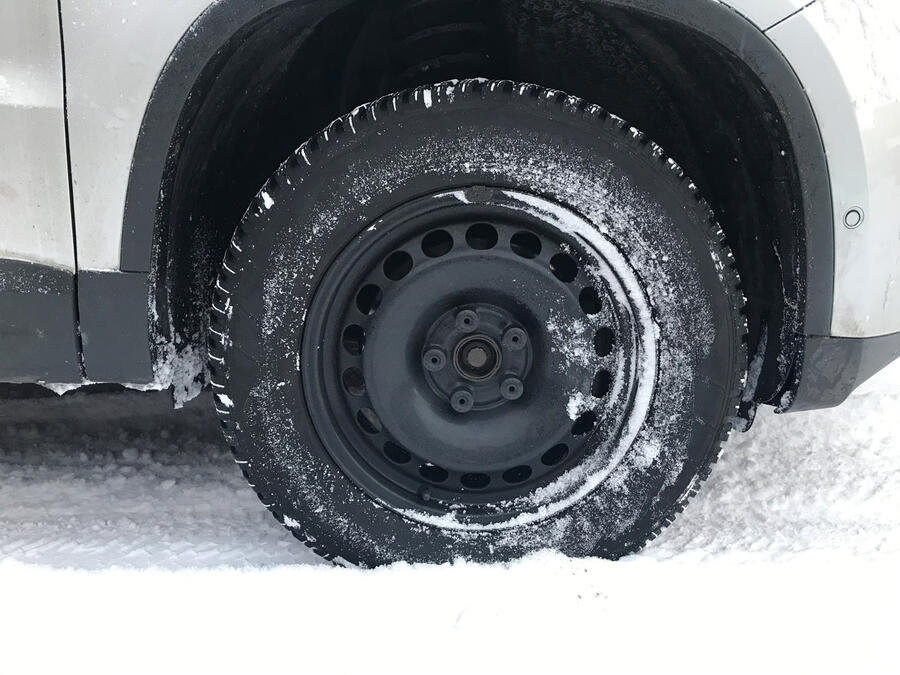
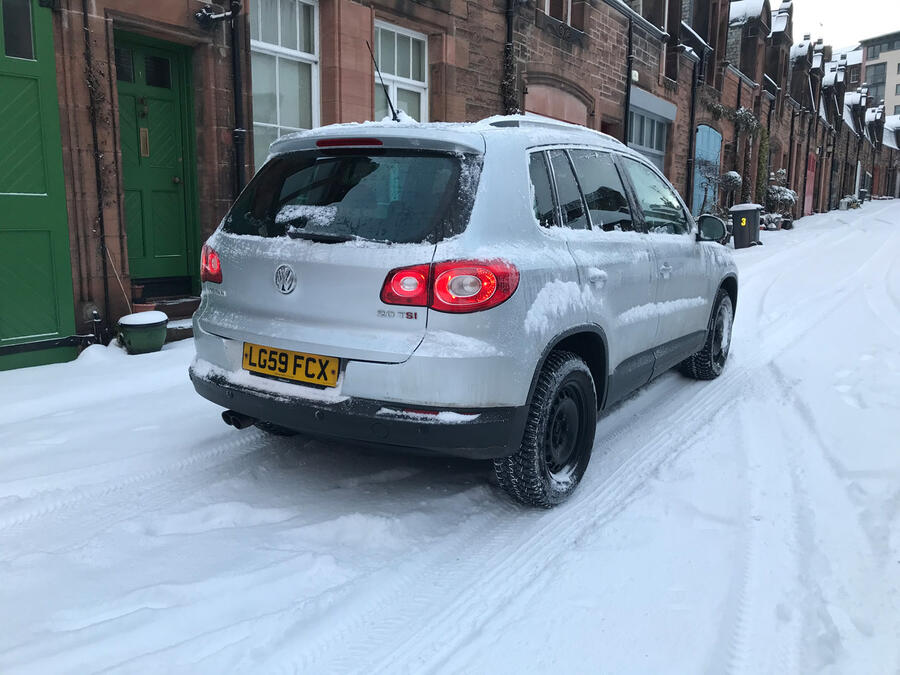

Join the debate
Add your comment
I could see the point of making mandatory if the UK had the same Winter conditions from lands end to John O'Groats, but we don't,and the UK being the UK , drivers here would want them subsidised because the Government is responsible for the Roads?
Here in Austria (and most European countries for all I know) winter tires are mandatory from october to march.
Just like in the UK we only have a few days with snowy roads each year, unless you live up in the mountains. Still, no matter the weather (snow, rain, dry) winter tires offer BY FAR more grip below 10 deg. Celsius. That means not only is a car with winter tires more capable of tackling snowy roads, it's also able to stop 5 to 10 metres earlier on a dry road at lower temperatures according to the Austrian Automotive club.
Also I think all weather tires are rubbish. They are just about okay in winter and just about okay in summer. So they do a worse job not only half the time but for the whole year.
The only downside to winter tires is the need for a second set of wheels. The cost for the tires doesn't really matter, because each set us only used for half a year, so you can keep them longer. Changing the wheels is something everybody can do. The tools necessary even come as standard kit on every car.
In exchange you don't have to die a horrible death because it takes your car longer to stop around christmas.
All-season tyres are not rubbish at all! They are the best compromise for the UK and make a real difference in snowy roads. I've been using them for years. The tiny percentage of UK drivers who live in very snow-prone areas may need a change of tyres, but they're responsible for their own remote residency... hill sheep-farmers usually have a Landrover or pickup with chunky rubber.
Chunky does by no means mean the rubber is more capable in the cold. Just in the mud.
Don't misunderstand me. I have no experience whatsover about driving in the UK. I was just surprised to see that winter tyres or not is even a topic :)
Standard fitment on UK cars should be All Season tyres. Then if you choose to have Summer or Winter tyres you can, but your car will be able to stop no matter what the weather.
This gets more important the further North you go.
I switched to winter tyres 10 years ago (West of Scotland) and discovered my old Bora on 15" steel wheels was totally unstoppable. Nowadays I stick with year-round Crossclimates - not quite as formidable, but I won't get stuck either.
Mandating all seasons is actually a really good idea. If someone wants summers then they could be obliged to change to winters for the colder months. You'd have to only apply this to new cars (but the rule sticks for the life of the car), but over time most cars would end up on allseasons and maybe we'd see a reduction in accidents in poor weather. There may be a slight economy penalty over eco focused summer tyres but the environmental impact of accidents and cars stuck in the resultant tailbacks could be balanced against this.